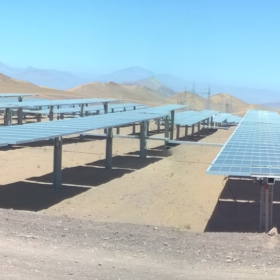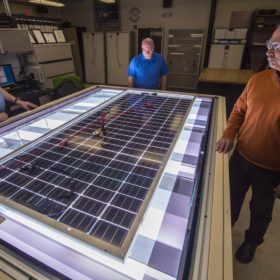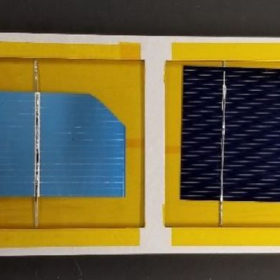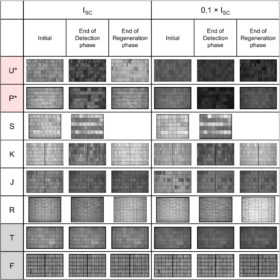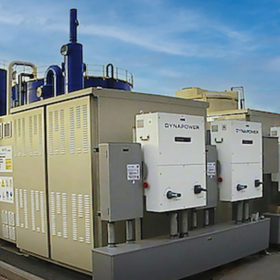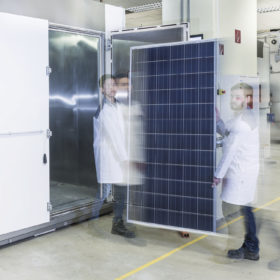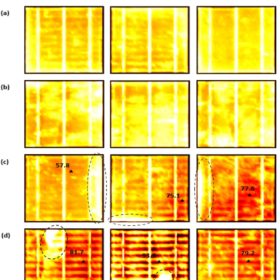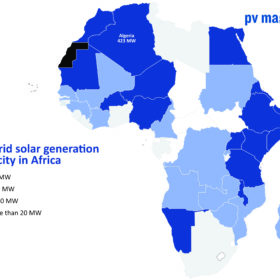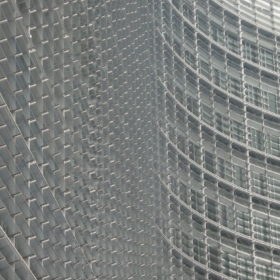Case study: When trackers are blown away, you can’t blame the wind
If the industry has sufficient knowledge and experience to deal with the effects of strong wind, why do trackers still get damaged and destroyed? pv magazine’s Pilar Sanchez Molina looks at a recent example in Spain with PI Berlin’s Asier Ukar.
Monitoring degradation for 13 module types
In a study that began in 2016, US scientists purchased 834 PV modules, representing seven manufacturers and 13 module types, and installed them in various climate conditions to observe their performance over time. The results show that, while plenty of opportunities still exist to extend module lifetimes and reduce performance loss in the field, reductions in the manufacturing cost of PV have not come with an increase in their degradation rate.
Role of UV in solar cell degradation
US scientists have tested a range of modern cell designs under strong ultraviolet light and have found that many of them, including p-type PERC and n-type heterojunction cells, are more susceptible to degradation than older back surface field designs. They noted that the rear side of bifacial cells may be particularly vulnerable.
Scientists, industry players reveal plans for new LETID testing standard
An international research group has published the details of a two-year project to develop reliable ways to assess light-elevated temperature-induced degradation in operational PV modules.
Schüco publishes warning due to potentially defective solar module backsheets
The PV manufacturer says there is a risk of electric shock in some of its solar modules due to defective polyamide backsheets. Products delivered between 2010 and 2012 are affected. According to Schüco, they should be uninstalled and disposed of.
Underwriters Laboratories to assess Redflow’s redox flow batteries
Underwriters Laboratories, a US non-profit standards development organization, will carry out research into the operating and safety profile of Redflow’s redox flow batteries under nominal and off-nominal conditions.
Bangladesh needs more labs to check quality of solar imports
While the government is moving to require foreign modules, inverters, batteries and charge controllers be subject to mandatory testing, the fear is that there are not sufficient testing sites in the country to achieve that ambition.
Damaging defects in silicon solar cells
Scientists in the UK investigated the relationship between two of the most worrisome defects that can affect solar cells in the field – cracking and hotspots. Their work analyzed solar cells with different levels of cracking under varying light conditions, finding that the most severely cracked cells were considerably more likely to run at high temperatures and form damaging hotspots.
Nigeria franchising out sections of power distribution network
The move will encourage private sector renewables companies to be part of the national energy industry, a representative of the regulator told a recent webinar which considered how to accelerate clean energy roll-out in Africa.
European Commission hints at solar module carbon footprint standards
A consultation process examining whether legislation is required to ensure the eco credentials of panels and inverters is focusing on eco-design and energy labeling but has also made mention of the need for less carbon intensive manufacturing.
